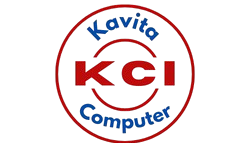Understanding the Diploma in DCA Course
In an increasingly digital world, proficiency in computer applications is crucial for personal and professional growth. The Diploma in Computer Applications (DCA) course is designed to equip individuals with the fundamental skills and knowledge required to navigate the technological landscape. Whether you’re looking to enhance your employability or gain a foundational understanding of computer systems, the DCA course provides a structured pathway to achieving these goals. In this blog, we’ll explore the key aspects of the DCA course, its benefits, and what you can expect from it.
What is the DCA Course?
The Diploma in Computer Applications (DCA) is a short-term educational program that typically spans six months to a year, depending on the institution and the mode of study (full-time or part-time). The course is intended for individuals who want to gain a solid grounding in computer applications and IT fundamentals. It serves as a valuable introduction to the world of computers, offering a mix of theoretical knowledge and practical skills.
Core Components of the DCA Course
The DCA curriculum is designed to cover a range of essential topics, providing students with a comprehensive understanding of computer applications. Here are some of the core components you can expect to encounter:
1. Basic Computer Skills :This module covers the fundamental aspects of computer usage, including understanding hardware and software, operating systems, and file management. Students learn how to operate computers efficiently, manage files, and troubleshoot common issues.
2. Office Applications: One of the primary focuses of the DCA course is proficiency in office productivity software. This includes training in word processing (e.g., Microsoft Word), spreadsheets (e.g., Microsoft Excel), and presentation software (e.g., Microsoft PowerPoint). Mastery of these tools is essential for various administrative and office-related tasks.
3. Database Management Databases are crucial for organizing and managing data effectively. The DCA course introduces students to database management systems (DBMS) such as Microsoft Access and SQL. Students learn how to create, manipulate, and query databases, which is valuable for roles involving data management and analysis.
4. Programming Fundamentals: While not as in-depth as specialized programming courses, the DCA program offers an introduction to programming concepts and languages. Common languages covered include C, C++, and Java. This module helps students understand basic programming logic and problem-solving techniques.
5. Internet and Web Technologies: As the internet plays a significant role in modern life, understanding web technologies is essential. This component covers the basics of internet usage, web browsing, and possibly introductory web development concepts, including HTML and CSS.
6.Networking and Communication: This module provides insights into computer networks and communication systems. Students learn about internet protocols, network types, and email communication. This knowledge is crucial for roles that involve managing or working with computer networks.
Benefits of Pursuing a DCA Course
Enrolling in a DCA course offers several advantages, making it a popular choice for individuals seeking to boost their computer skills. Here are some key benefits:
1. Foundational Knowledge: The DCA course provides a strong foundation in computer applications, which is beneficial for various career paths. It helps students develop essential skills that are applicable in many professional settings.
2. Career Opportunities: With a DCA diploma, individuals can pursue entry-level positions in fields such as data entry, office administration, and IT support. The skills acquired during the course are also transferable to roles in various industries, enhancing employability.
3. Cost-Effective Education: Compared to more extensive degree programs, the DCA course is relatively affordable and time-efficient. It offers a focused curriculum that provides practical skills without the long-term commitment of a full degree.
4. Skill Enhancement: For those already employed, the DCA course can enhance existing skills and knowledge, making individuals more competitive in the job market. It provides practical training that can be immediately applied to workplace tasks.
5. Career Advancement: For professionals looking to transition into IT-related roles or advance their careers, the DCA course serves as a stepping stone. It provides a solid foundation for pursuing further education or specialized certifications in IT.
What to Expect During the Course
The DCA course typically involves a mix of lectures, hands-on exercises, and practical projects. Students may also have access to online resources and software tools to aid their learning. Assessment methods often include exams, assignments, and project work to evaluate understanding and application of the course material.
Choosing the Right Institution
When selecting a DCA course, it’s important to choose a reputable institution that offers quality education and practical training. Consider factors such as the course curriculum, faculty qualifications, infrastructure, and student reviews. Some institutions also offer online or distance learning options, providing flexibility for working professionals or those with other commitments.
The Diploma in Computer Applications (DCA) course is a valuable educational opportunity for anyone looking to gain foundational computer skills. It covers essential areas such as office applications, database management, programming fundamentals, and internet technologies, preparing students for various career paths in the digital age. Whether you’re entering the job market or seeking to enhance your current skills, the DCA course provides a practical and cost-effective solution. By choosing the right program and committing to your studies, you can equip yourself with the knowledge and skills needed to succeed in today’s technology-driven world.
